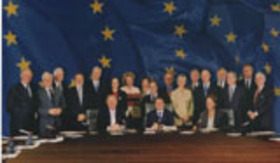

Eurostat is the statistical office of the European Commission. It is currently alleged that senior officials within Eurostat channelled millions of euros into unofficial bank accounts, away from budgetary controls.
This was announced to the European Parliament at a meeting on Wednesday (9 July 2003) by Administrative reform Commissioner Neil Kinnock and his monetary affairs colleague Pedro Solbes.
It is alleged that Eurostat officials proposed fake sums of money to be used for contracts and then spent leftover money as they pleased - this practice was used only with certain 'trustworthy' contractors.
In 1999, when this originally came to light, senior Eurostat officials asked that this practice be stopped. However, this instruction was delivered orally and with no systematic following-up or monitoring.
Some of the money may have been lost due to bankruptcy of the companies in question, but it seems that some of these secret bank accounts still exist.
The Hamburg-based magazine Stern claims that Eurostat concluded so-called "fictitious contracts" with private companies in 2000 and 2001, which is after the present Commission took office.
Notes
The present Commission, headed by Romano Prodi, took control in 1999, promising ‘zero-tolerance’ of fraud and mismanagement.
The Eurostat allegations have cast doubt over whether the present Commission took the necessary steps to prevent corruption and fraud. However, the Commission insists that it "could not act before as [it] did not know" - although fraud has been ongoing for over 3 years.
However, a letter dated 1 January 2002 obtained by Stern magazine apparently shows the vice-President of the Commission Neil Kinnock referring to an investigation into the affairs of one of the sub-contractors involved in the alleged fraud at Eurostat, indicating that he may have been aware of the fraud earlier than he publicly claims.